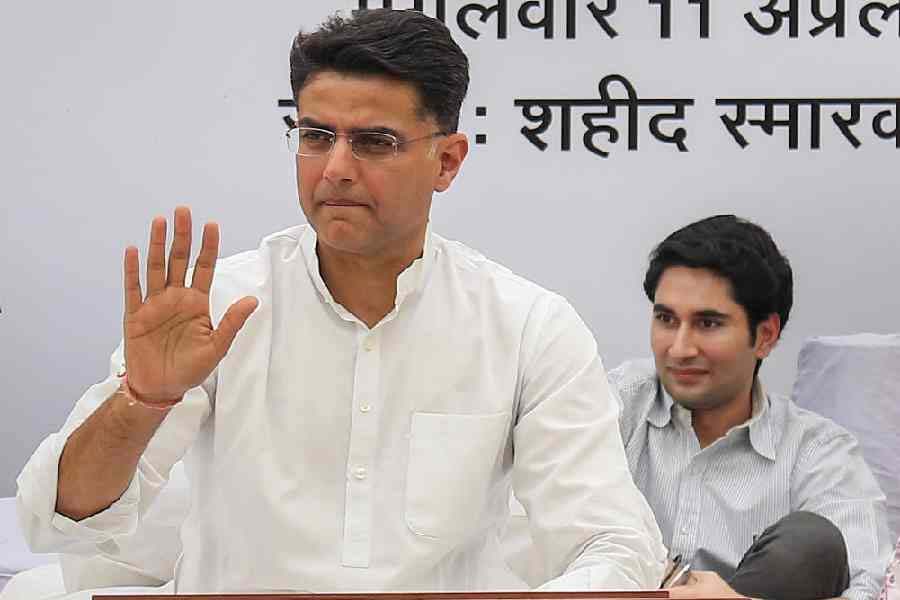In New Delhi, Sachin Pilot, a senior figure in the Congress, asserts that Lord Ram transcends any single political entity such as the BJP and emphasizes that the discourse in the upcoming Lok Sabha elections under the banner of the INDIA coalition will revolve around substantive issues rather than mere emotional appeals. Pilot, who serves as the Congress’s general secretary, exudes optimism regarding the prospect of the Indian National Developmental Inclusive Alliance (INDIA) securing a parliamentary majority and assuming governance.
During an interview with PTI at the agency’s headquarters in the capital, Pilot critiques the NDA’s “400 paar” slogan, characterizing it as indicative of overbearing confidence. He questions the BJP’s focus on projecting a blueprint for its potential third term in power while neglecting to account for its performance over the past decade. Pilot urges the Election Commission to ensure equitable treatment for all political parties.
Regarding the Income Tax department’s pursuit of the Congress, entailing a substantial sum exceeding Rs 3,500 crore, Pilot condemns the unprecedented measure of freezing the principal opposition party’s accounts as detrimental to democratic norms.
Despite prevailing challenges, Pilot expresses faith in both the electorate and the foundational principles of the Congress, affirming the INDIA coalition’s capability to secure a parliamentary majority following the election on June 4. The former deputy chief minister of Rajasthan predicts a shift in fortunes for the Congress in the desert state, contrasting with its previous electoral setbacks in the last two Lok Sabha contests.
Asked about the purported surge of support for a Ram temple in northern India and the INDIA coalition’s strategy to address it, Pilot underscores the centrality of contemporary issues, including the erosion of constitutional institutions. He underscores the coalition’s focus on youth, women, and farmers, advocating for measures such as a statutory minimum support price (MSP) to resonate with voters.
Pilot dismisses the notion of an electoral agenda centered on religious or communal divides, emphasizing instead the importance of economic policies, employment generation, inflation mitigation, and agricultural reform in shaping the nation’s future. He rebuffs attempts by the BJP to monopolize religious symbols such as Lord Ram, asserting their universal relevance beyond partisan interests.
Expounding further, Pilot elucidates that the construction of the Ram temple transpired as a result of the Supreme Court’s adjudication, signifying a collective acceptance of its verdict. He warns against leveraging religious sentiments for political gain, advocating for the separation of state and religion.
Regarding Prime Minister Narendra Modi’s discourse on his administration’s priorities for a potential third term, Pilot emphasizes the need to refrain from preemptively interpreting electoral mandates. He advocates for a fair electoral process centered on substantive concerns affecting the populace.
Asserting the Congress’s commitment to presenting a comprehensive vision for India’s future, Pilot holds the government accountable for exacerbating unemployment, inflation, and socioeconomic disparities. He stresses the absence of these critical issues from the BJP’s electoral agenda.
Pilot underscores the importance of fair, transparent, and inclusive elections that reflect India’s robust democratic ethos. Citing the INDIA coalition’s significant vote share in 2019, he attributes the BJP’s recruitment efforts to a sense of insecurity within the ruling party.
In discussing the Congress’s prospects in Chhattisgarh, Pilot acknowledges historical electoral challenges but expresses confidence in the party’s improved standing. He refrains from providing specific numerical predictions but anticipates significant gains for the Congress in the state’s 11 parliamentary constituencies.









